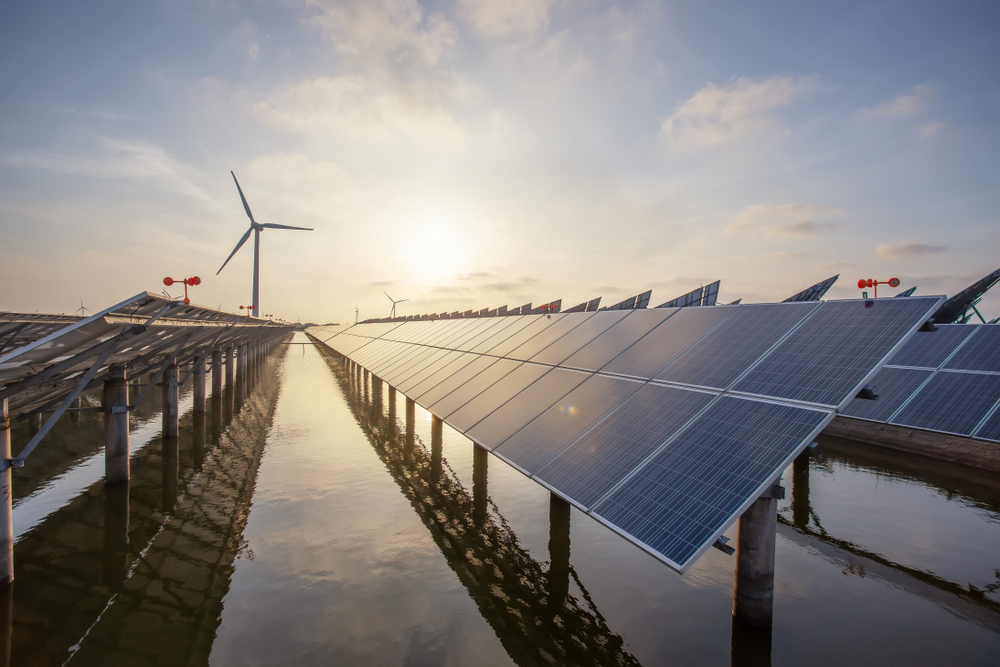![[CleanEnergy4CE] Putting clean energy transition policies into practice in central Europe](/sites/default/files/2024-06/energy-efficiency.jpg)
[CleanEnergy4CE] Putting clean energy transition policies into practice in central Europe
Projects
April 2024 - May 2025
EUR 258,959.00
Scope
This targeted analysis will focus on the 9 EU Member States covered by the Interreg CENTRAL EUROPE (CE) transnational cooperation programme. Interreg CENTRAL EUROPE is one 14 transnational programmes 2021-2027 under the goal of European Territorial Cooperation and a main pillar of the European Cohesion Policy. The Interreg CE 2021-27 programme is closely aligned with the key principles and objectives of both policies, the European Green Deal and the Territorial Agenda 2030. Emphasis on the sustainable and clean energy transition is horizontally embedded within all the programme priorities and specific objectives ranging from innovation, environment, energy, climate change and circular economy to transport, mobility and governance. Furthermore, the programme recognises importance of place-based policies by supporting policy and implementation-oriented actions and emphasizing the territorial dimension and place-based approaches.
Economically, the CE area is an industrial core of the EU. Its economy generates 30% of EU GDP and its industrial development is a key factor for the global competitiveness of the EU. However, the CE area is characterised by structural differences between urban / industrialised areas and rural / peripheral areas as well as along the former Iron Curtain. Despite major progresses, economic and social differences between ‘Eastern’ and ‘Western’ countries are still pronounced.
Energy efficiency and the reduction of greenhouse gas (GHG) emissions are key challenges for central Europe. For example, because the energy crisis has caused more investment in oil and gas projects undermining the efforts put in energy transition. In addition, the share of renewables in gross final energy consumption in 2021 differs across CE, from 14.1% in Hungary to 36,4% in Austria. Although majority of CE countries outperformed their self-defined 2020 renewable energy targets, further policy efforts are needed to increase the uptake of renewable energy sources in all sectors. Policies also need to address the reduction of energy demand in all sectors, including transport and facilitate improvement of energy performance of buildings including energy efficient heating and cooling solutions (Interreg CE IP21-274).
To meet the EU’s energy and climate targets for 2030, EU countries need to establish integrated national energy and climate plans (NECP). An assessment of final NECPs showed that there is a lack of a systematic information on the actual status and implementation progress of local and regional action plans in the CE countries. In order to address the challenges related to climate neutrality, supporting the transition to a climate neutral central Europe is already a long-standing topic of the Interreg CE Programme and remains a key topic also in the Interreg CE 2021-27 Programme.
This targeted analysis aims to provide a deeper understanding on the type of energy transition policies, the respective territorial levels, and how they can successfully support accelerating clean energy transition towards climate neutrality in central Europe. It will analyse the state of the art of the energy transition trends and identify the existence and implementation level of policy instruments, strategies and action plans. Furthermore, it will identify the predominant success factors and bottlenecks for establishing energy transition policies within the CE territories that can be efficiently addressed and supported through transnational cooperation and tailored governance mechanisms.
Policy questions to be addressed
What is the territorial coverage and the state of play of implementation of energy transition strategies and action plans at different territorial levels in CE?
What are the main barriers and drivers for the successful design and implementation of energy transition policies at different territorial levels?
What are the existing relevant networks, schemes and instruments used for knowledge and capacity building on energy transition strategies and action plans design and implementation? How can synergies between different instruments be best used?
How can (transnational) cooperation improve governance mechanisms and solutions for integrated policy making at transnational, national, regional and local governance levels to support successful transition to climate neutrality by 2050?
The main outputs of the service shall be:
Collection and analysis of territorial evidence on coverage and the state of play of the implementation of energy transition strategies and action plans at different territorial levels in CE for the 2030 / 2050 timeframe including reaching the climate neutrality targets by 2050.
Identification and analysis of main barriers and drivers for the successful design and implementation of energy transition policies at different territorial levels.
Identification and analysis of existing relevant networks, schemes and instruments used for knowledge and capacity building on energy transition strategies design and implementation.
Identification and analysis of (transnational) cooperation approaches to improve governance mechanisms and solutions for integrated policy making at transnational, national, regional and local governance levels to support successful transition to climate neutrality by 2050.
Policy and implementation recommendations tailored to different governance levels such as national, regional and local level for place-based development and integrated clean energy transition should be formulated.
Data and interactive maps and graphs resulting from the research and provided in the format compatible with the environment of the ESPON Portal.
More information
Stakeholders
The City of Vienna, as Managing Authority and Monitoring Committee Member of the Interreg CE Programme 2021-2027 (AT), lead stakeholder
Federal Ministry of Agriculture, Forestry, Regions and Water Management (AT)
Ministry of Regional Development, European Territorial Cooperation Department (CZ)
Ministry of the Environment, Department of Financial and Voluntary Instruments (CZ)
Chamber of Renewable Energy Resources (CZ)
Ministry of Regional Development and EU Funds, Sector for Coordination of European Territorial Cooperation Programmes and Macro-Regional Strategies (HR)
Ministry of Energy, Electricity Department (HU)
Ministry of Development Funds and Regional Policy, Territorial Cooperation Department (PL)
Ministry of Climate and Environment of the Republic of Poland, Department of International Affairs (PL)
Ministry for Cohesion and Regional Development of the Republic of Slovenia, Interreg and Financial Mechanisms Office (SI)
Slovak Innovation and Energy Agency (SK)
INTERACT Programme, Bratislava Self Governing Region - regional public authority, MA of the Interact Programme (SK)
Contractor: Charles University, Czech Republic (lead tenderer)
SEMMO – Association of Local Energy Managers, Czech Republic (subcontractor)
UNICO Analytics, Czech Republic (subcontractor)
Contact:
Marjan van Herwijnen Research and Policy Manager
Laura Dimitriu Administration and Contract Manager



